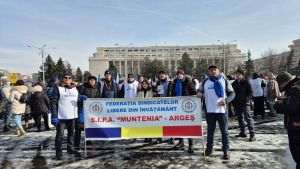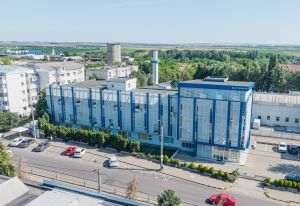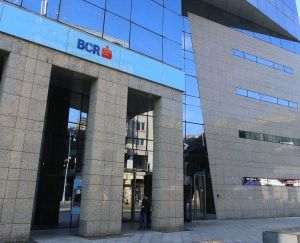• The privatization of "CFR Marfă", the secondary offering for "Transgaz" and the selection of the intermediary for "CE Oltenia", are some of the objectives which must be achieved
The stand-by agreement which Romania has with the International Monetary Fund (IMF) will be extended by another three months, and the evaluation is set to take place at the end of June, through the vote of the Board of Directors, Erik de Vrijer, the head of the mission of the Fund to Romania said. The extension would allow the government to reach the agreed upon goals, to privatize certain companies, the primary or secondary public offerings of some companies on the Bucharest Stock Exchange (BSE), as well as the implementation of professional management in some state owned companies, he said.
Some of the objectives agreed include the selection of a strategic investor for "CFR Marfă" and the conclusion of the sale-purchase agreement with the investor in question. Also, by the time of the evaluation mission, the secondary public offering of 15% for the shares of "Transgaz", as well as the selection of the company or the consortium which will intermediate the IPO for 15% of the shares of the "Oltenia Energy Complex", Erik de Vrijer said.
The official of the IMF explained that the granting of a three-month extension was decided, instead of two months like the government had initially requested, to give the Executive enough time to select a strategic investor for "CFR Marfă".
If Romania fails to meet the established objectives, the current agreement will expire, which means we would no longer have an agreement with the IMF.
The representatives of the institution estimate that the Romania's economy stagnated last year, whereas for this year they expect a growth of 1.5%.
"As you know, in 2012 there was zero economic growth in 2012, after 2.2% in 2011. We believe that in 2013, the growth rate will be approximately 1.5%. The growth is relatively weak, partly because after a financial crisis the recovery takes time, partly because of the foreign environment, because of the weather in 2012, but also because the implementation of the reforms and the absorption of funds has not been as fast as we have planned", said Erik de Vrijer.
The co-financing rate of the public projects developed using European funds, should return to 15%, starting in March, up from its current level of 5%. The agreement with the European Commission (CE) is scheduled to take place in March, when the agreement with the IMF is expected to expire as well, he said. The EC has decided to formally end the agreement with Romania in March, but will participate in the next evaluation.
Erik de Vrijer said that Romania will not be able to conclude an agreement with the IMF without an agreement with the European Commission as well, since Romania is a member of the European Union. A new agreement with the Fund is possible, but it depends on how the current agreement will be completed, and the commitment of the Government to continue the structural reforms and to maintain a cautious fiscal policy.
Romania had obtained from the EC, an exemption which allowed the government to finance only 5% of the public projects which benefit from European funds, instead of the standard quota of 15%.











































